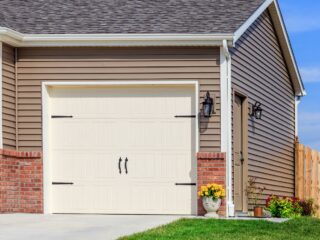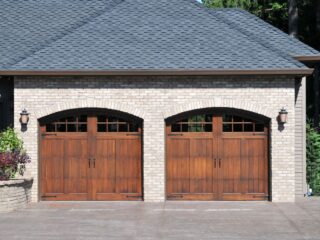
Diy Sliding Closet Doors Ideas
I’ve always been a fan of DIY projects, especially when it comes to home improvement. One project that caught my attention recently is the idea of DIY sliding closet doors. The concept of transforming a plain, traditional closet into a stylish and functional space is definitely intriguing. However, before diving into this project, it’s important to weigh the pros and cons to ensure it’s the right fit for your home.
When it comes to the pros of DIY sliding closet doors, there are several key advantages. First and foremost, they can save valuable space in smaller rooms. By eliminating the need for swing-out doors, sliding doors can maximize the available floor area. Additionally, sliding closet doors can add a modern and sleek touch to any room, instantly upgrading its aesthetic appeal. Lastly, DIY sliding doors can be a cost-effective solution, as they can be made from affordable materials and customized to fit your specific style and needs.
While there are many benefits to DIY sliding closet doors, it’s important to consider the potential drawbacks as well. One major con is the level of difficulty involved in the installation process. Unless you have prior experience or are particularly handy, installing sliding doors can be a complex and time-consuming task. Furthermore, sliding doors may not be suitable for every type of closet, especially those with limited wall space. Lastly, it’s important to note that sliding doors may not provide the same level of insulation and soundproofing as traditional doors, which could be a concern for some homeowners.
Pros of DIY Sliding Closet Doors
When it comes to DIY sliding closet doors, there are several advantages that make them a popular choice for homeowners. Here are some of the pros to consider:
- Space-saving: One of the biggest benefits of installing sliding closet doors is that they can save a significant amount of space in smaller rooms. Unlike traditional hinged doors that swing open, sliding doors simply glide along a track, eliminating the need for extra clearance space.
- Modern and stylish: DIY sliding closet doors can add a sleek and contemporary touch to any room. With a wide range of materials, finishes, and designs available, you can easily find a style that complements your existing decor and enhances the overall aesthetics of your space.
- Cost-effective: Opting for DIY sliding closet doors can be a budget-friendly choice. Compared to other types of doors, sliding doors are generally more affordable, making them an attractive option for those looking to update their closets without breaking the bank.
- Easy installation: Installing sliding closet doors can be a relatively straightforward DIY project. With the right tools and materials, you can save on professional installation costs and complete the project on your own. However, it’s important to note that proper measurements and alignment are crucial for a successful installation.
- Versatility: Sliding closet doors are available in various configurations, such as bi-fold or multi-panel designs. This versatility allows you to customize your closet space and maximize its functionality according to your specific needs.
While DIY sliding closet doors offer numerous advantages, it’s essential to consider the cons as well. Keep reading to learn about the potential drawbacks of this home improvement project.

Cons of DIY Sliding Closet Doors
When considering DIY sliding closet doors, it’s important to weigh the drawbacks alongside the benefits. Here are some cons to keep in mind:
1. Installation Challenges
Installing DIY sliding closet doors can be a complex and time-consuming process. It requires careful measurements, accurate alignment, and proper hardware installation. If you’re not experienced with DIY projects, you may find yourself struggling to get the doors properly installed.
2. Not Suitable for All Closets
While DIY sliding closet doors offer versatility, they may not be suitable for all types of closets. For instance, if you have a small reach-in closet with limited space, the sliding doors might not be the best fit. They require enough wall space for the doors to slide open and closed smoothly. Additionally, if your closet has an irregular shape or unique design, it may be challenging to find sliding doors that fit properly.
3. Limited Insulation and Soundproofing
Traditional hinged doors provide better insulation and soundproofing compared to DIY sliding closet doors. The gaps between the sliding doors and the frame can allow noise to leak in and out of the closet. Additionally, sliding doors may not provide the same level of insulation against temperature changes, which can be a concern if you live in an area with extreme weather conditions.
4. Potential Maintenance Issues
Over time, DIY sliding closet doors may require maintenance to ensure smooth operation. The tracks and rollers can accumulate dirt and debris, affecting the doors’ functionality. Regular cleaning and lubrication are necessary to prevent sticking or jamming. If you’re not willing to invest time and effort into maintaining the doors, they may become more of a hassle than a convenience.
While DIY sliding closet doors have their drawbacks, they can still be a viable option for many homeowners. It’s essential to carefully consider your specific needs and the limitations of your space before embarking on this project. By weighing the pros and cons, you can make an informed decision that suits your style and functionality requirements.





